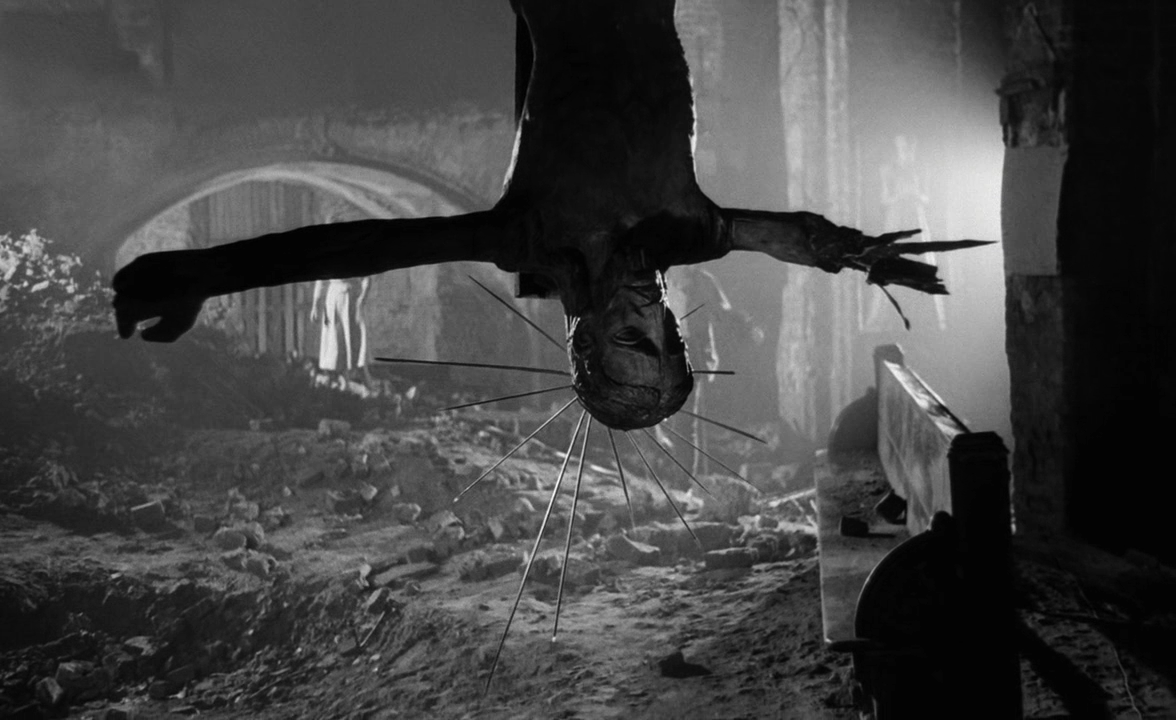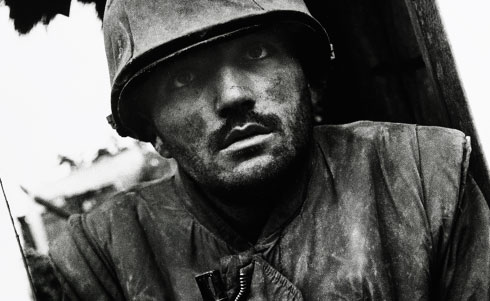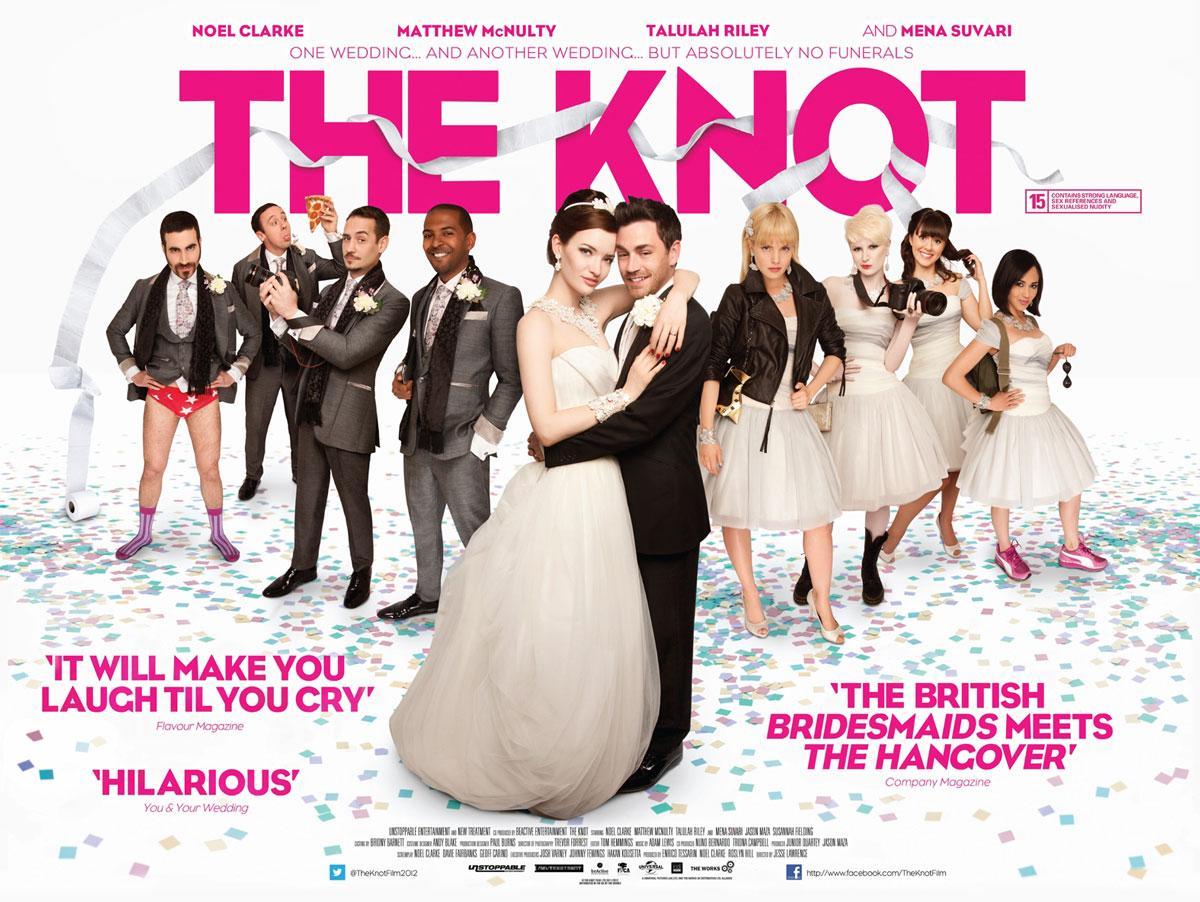"Put your things away, and don't make a mess." The command uttered by a mother to her son in Jacques Tati's second outing as M. Hulot in some way defines what Mon Oncle is getting at: it's also the sort of brief the authorities give to urban planning chiefs, and thus gets instilled in the populace at large. Tati here sought to contrast marketplace- and townsquare-warmth - the chatter, the stray dogs, the litter - with the sterility and clean, cold lines of the suburbs; the irony is that Hulot's neatfreak relatives fear that it's our hero who might be the lonely one, and thus try to squeeze him into a proper job at a joyless plastics factory. Naturally, regimented routines and respectability are not for this klutz - and he tries to save his young nephew Gérard from being tidied away with him.
As with much of Tati's later filmography, this is high-concept comedy, designed - and that is the right word - to be theorised about at least as much as it is meant to be laughed at: when I say it's the thinking person's comedy, I intend it to sound like both a compliment and an index of its limitations, a suggestion it might not be as purely funny as the sensation of watching, say, Chaplin kicking a fat man up the bum. (Tati's icon status maybe explains why the French similarly gravitated towards Jerry Lewis, whose films preserved Tati's design, but replaced his slightly detached, academic quality with an unapologetic American showmanship - that desire, rather lacking here, to kick ass and tear shit up.)
The jokes are secondary to the point being made, and while the point holds - particularly when you consider how sterile and homogenous our towns have become through decades of safe, control-freak planning - traces of Luddism can be glimpsed in the vision: you don't necessarily have to be a health-and-safety Nazi to believe waffle sellers with filthy hands might not be entirely good for our children. Meanwhile, the finicky aesthetic gets pushed to such a degree that it goes round the back of reason and ends up contradicting the film's own argument. Though the ideal home of Gérard's parents requires endless maintenance - particularly when compared to Tati's happily ramshackle top-floor apartment - and fosters more stress than satisfaction, you can't help but admire the ingenuity of its design: the fountain shaped like a leaping metallic salmon that has to be switched on every time there are visitors; the spray-gun for gravy; the coffee pot that's also part football.
This, one might venture, is the problem with laying out your critique of consumerism in the fulsome, expensive style of a *Wallpaper magazine shoot, or the IKEA catalogue: certain items catch the eye, and become must-haves. (TV's Mad Men has the exact same issue.) At a time when most screen comedy possesses all the visual appeal of a brown paper bag left out in the rain, it may be churlish to carp at something this compulsively (and often compellingly) choreographed, yet Tati's desire to do something brilliant with every shot, even when he falls short, results in a film equal parts amusing and exhausting: there are episodes of Keeping Up Appearances that make the same point in the same ratio at a quarter of the length, and there are Laurel and Hardy shorts on the same theme that simply rack up more (and bigger) laughs.
Mon Oncle is available on DVD through the BFI.

















